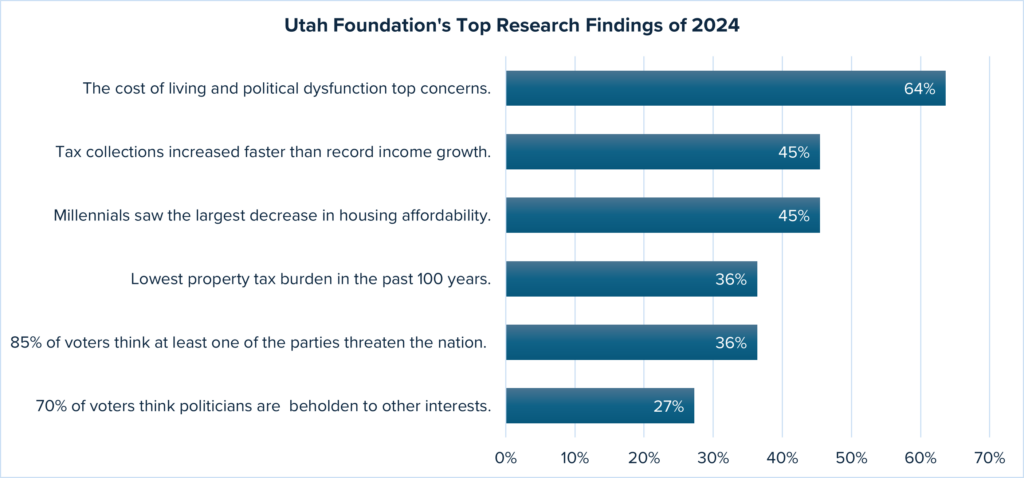The Utah Foundation’s Board of Trustees not only determines each year’s research agenda – it also determines the most important findings for the year. Nearly two-thirds (64%) of the board voters picked the number one choice.

Note: The percents above show the board members who voted for each issue. Each board member had three votes to select the top items from a final list of 10.
Three findings are from the Utah Priorities Project (one report and two briefs). Two findings come from one tax report. One finding is from a housing report.
- The cost of living and political dysfunction topped the most important issues in 2024. Read more in our Priced Out and Fed Up report.
- Utahns’ personal income rose the fastest of any state from 2016 to 2021. Utahns’ tax burden also rose over the same time period meaning the tax collections increased even faster than the residents’ record personal income growth. Read more in our Balancing the Burden report.
- Compared to older generations, millennials saw the largest decrease in housing affordability during peak household formation years. Read more in our Moving Utahns Toward Homeownership: Benefits, Rates, Affordability, and Obstacles report.
- Utahns’ property tax burden in 2021 was $22.76 per $1,000 of personal income – the lowest property tax burden in the past 100 years. Read more in our Balancing the Burden report.
- Half of the Project’s survey respondents think the policies of the Republican party threaten the nation’s well-being and half of voters believe the Democratic party threatens it. One in six Utah voters think both parties do. Nonetheless, Utahns believe that there is a way forward. Three-quarters of Utah voters agree that compromise is how things get done in politics, though conservatives are less likely to agree. Read more in our Partisan Politics brief.
- Over 70% of respondents agreed that “Utah’s politicians are too beholden to business, religious, or other special interests and ignore the will of the people.” When analyzing this set of data by demographic subgroups, Democrats, unaffiliated voters, and those who are less religious really stood out. Read more in our Politicians Not Listening to Voters brief.
Categories:

